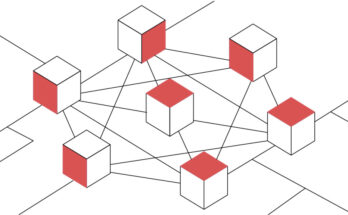In an era where environmental and social responsibility are paramount, harnessing cutting-edge technology to support sustainability is not just an option; it’s a necessity. Blockchain, a transformative innovation best known for its association with cryptocurrencies, has far-reaching applications extending beyond finance. This article delves into the incredible potential of blockchain technology to drive sustainability efforts, ushering in a future where transparency, traceability, and trust converge to reshape industries and empower eco-friendly initiatives. Whether you’re an environmental enthusiast, a tech-savvy individual, or simply curious about the intersection of technology and sustainability, read on to discover how blockchain features can supercharge our commitment to a greener planet.
What is Blockchain?
Before we explore how blockchain can bolster sustainability, let’s break down the fundamentals:
Blockchain is a decentralized, distributed ledger technology that records transactions in a secure, tamper-proof, and transparent manner. It consists of a chain of blocks, each containing a set of transactions. What sets blockchain apart is its immutability and decentralization. Once a record is added to the chain, it cannot be altered and doesn’t rely on a central authority to maintain its integrity.
Blockchain Features Driving Sustainability
Now, let’s dig into the specific features of blockchain that support sustainability efforts:
1. Traceability and Transparency
Blockchain’s inherent transparency makes it an invaluable tool for supply chain management. It enables consumers and businesses to trace the journey of products from source to shelf. In the context of sustainability, this means greater accountability. Whether you’re buying organic food or sustainable fashion, blockchain can verify the authenticity of eco-friendly claims, ensuring that you’re making choices aligned with your values.
2. Carbon Credits and Emission Reduction
Blockchain offers a practical solution for tracking and trading carbon credits. Organizations can securely buy and sell these credits by recording carbon emissions and reductions on a blockchain. It simplifies the process and ensures the integrity of carbon offset initiatives, which are vital for mitigating climate change.
3. Smart Contracts for Conservation
Smart contracts are self-executing contracts with the terms of the agreement directly written into code. In conservation, they can automate agreements related to land use, environmental protection, and resource management. These contracts ensure that both parties uphold their responsibilities, providing a reliable framework for sustainable practices.
4. Decentralized Energy Grids
Blockchain technology can empower decentralized energy grids by enabling peer-to-peer energy trading. Residents with solar panels, for instance, can sell excess energy directly to neighbors, promoting renewable energy use and reducing dependence on centralized power grids, which often rely on fossil fuels.
Challenges and Considerations
While the potential of blockchain for sustainability is immense, there are challenges to address:
1. Energy Consumption
Blockchain networks, particularly those using proof-of-work consensus mechanisms, consume significant energy. As we advocate for sustainability, we must also consider the carbon footprint of blockchain technologies.
2. Scalability
The current blockchain infrastructure faces scalability issues, which need to be resolved for it to handle the vast amounts of data generated by sustainability initiatives. Solutions like Layer 2 scaling and blockchain interoperability are being explored.
3. Collaboration and Standardization
Global collaboration and standardization are crucial to harness blockchain’s full potential for sustainability. Organizations and governments must work together to ensure a seamless transition to blockchain-based systems.
The Promise of a Greener Future
In a world where sustainability is a priority, blockchain technology has the potential to drive significant change. By enhancing transparency, enabling carbon credit trading, automating conservation agreements, and promoting decentralized energy, blockchain aligns perfectly with the principles of environmental responsibility.
However, it’s essential to navigate the challenges and seek innovative solutions. Blockchain’s carbon footprint must be reduced, scalability issues addressed, and international cooperation encouraged. Only then can we unlock the full promise of a greener, more sustainable future.
The trillion-dollar cryptocurrency industry was established by blockchain, but it did it with a tremendous energy influx. The carbon footprint of Bitcoin surpassed that of Switzerland in 2019. After noticing this trend, governments and cryptocurrency owners alike started attempting to make blockchain an environmentally friendly technology.
The executive order “Ensuring Responsible Development of Digital Assets,” released by the White House in March 2022, aims to reduce the climatic effect of cryptocurrency assets. Ethereum, a well-known cryptocurrency, switched to a less energy-intensive architecture in the same year. Additionally, several blockchain miners started powering their equipment using renewable energy sources.
Conclusion: A Sustainable Technological Revolution
Blockchain technology is not just a buzzword in the world of finance; it’s a revolution with the power to transform industries, particularly in sustainability. By embracing its features and capabilities, we can drive positive change in how we consume, protect the environment, and promote eco-friendly practices.
As we move forward, governments, organizations, and individuals need to recognize the potential of blockchain and work collectively to harness its power. The road to a more sustainable future is not just about renewable energy and conservation; it’s also about embracing innovative technologies like blockchain to accelerate our journey toward a greener planet.
So, whether you’re a passionate environmentalist, a tech pioneer, or simply someone eager to contribute to a sustainable future, take a closer look at how blockchain can be your ally in the pursuit of eco-conscious living. The time has come to reimagine sustainability through the lens of blockchain, and together, we can profoundly impact the world.




